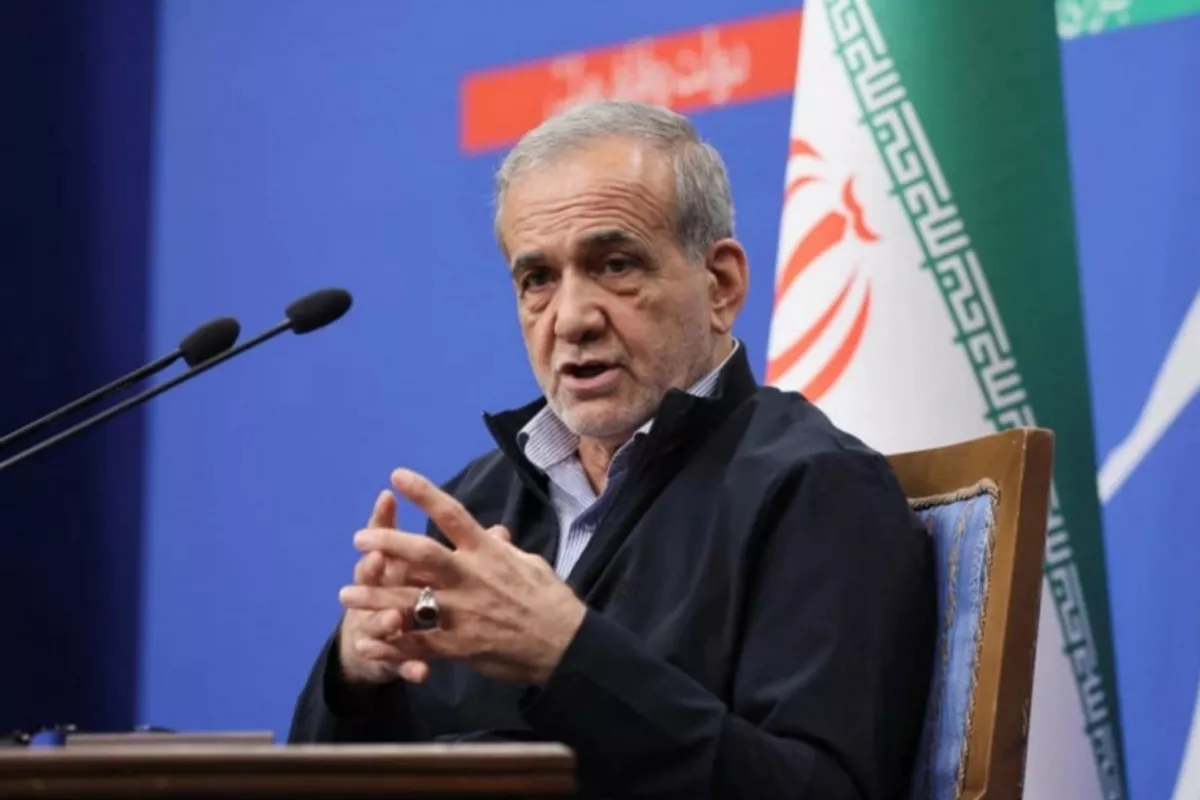
Photo: AZERTAC
Amid ongoing geopolitical shifts in the region, international observers are paying close attention to Iran’s role in South Caucasus politics, the course of negotiations with the United States, and the future of Iran-Israel relations. In an exclusive interview with The Caspian Post, Russian Iran expert Lana Ravandi-Fadai shares her assessment of Iranian President Masoud Pezeshkian’s participation in the ECO Summit in Khankendi, offers her outlook on the dialogue between Washington and Tehran, and explains why allegations that Azerbaijan has allowed Israeli activity on its territory do not stand up to scrutiny.

- How do you assess the participation of Iranian President Masoud Pezeshkian in the 17th ECO Summit in Khankendi?
- I view President Pezeshkian's participation in the ECO Summit in Khankendi as a very positive step. It demonstrates that the Iranian president is truly committed to the principles of peace and good neighborliness in the region. Moreover, the very fact that the President of Iran visited Khankendi clearly indicates that Iran fully recognizes Karabakh as an integral part of Azerbaijan.
His meeting with Azerbaijani President Ilham Aliyev was warm and constructive. President Pezeshkian noted that efforts are underway to increase the number of flights between Baku and Tehran, as well as Baku and Tabriz. He also mentioned the ongoing construction of the Aghbend-Kelaleh road bridge.
- What are your forecasts regarding the negotiation process between the United States and Iran?
- I expect the negotiations between the U.S. and Iran to be protracted, but ultimately a compromise will be reached. And as strange as it may sound, I believe that Trump will eventually make significant concessions to Iran. I’ve been analyzing his behavior both during his first term and now, and I see notable changes in his approach. The current Trump is much softer toward the Islamic regime in Iran than he was in his first term. The reasons behind this shift in policy are complex, but we can already see tangible results.
For example, Trump effectively forced Israel to halt its bombing campaign after 12 days, even though Netanyahu had planned to continue the strikes for at least another week. It seems that Trump may have ordered strikes on Iranian nuclear facilities himself in order to prevent a broader war-essentially sending the message that “the U.S. has already done enough,” making further Israeli action unnecessary. Notably, those nuclear facilities suffered minimal damage; the Iranians managed to remove the uranium in time.
Of course, Trump’s rhetoric remains staunchly pro-Israel and often offensive toward Iran. But behind the smokescreen of praise for Israel and harsh, at times humiliating, criticism of Iran, he is making moves that in practice benefit Iran more than Israel. That is why I believe the Trump administration may indeed be willing to ease or lift some sanctions on Iran-albeit under the condition of full international oversight of the Iranian nuclear program.
- What is your view on the allegations that Azerbaijan has allowed its territory to be used by Israel to strike Iran?
- I believe these accusations are completely unfounded. Azerbaijani Foreign Minister Jeyhun Bayramov has clearly stated that his country will not allow its territory to be used for attacks against Iran. He also expressed condolences to the Iranian side over the deaths of officers and civilians.
These claims are being made by certain representatives of Iran's conservative bloc, who are dissatisfied with Azerbaijan’s growing influence. They also criticized President Pezeshkian for what they described as his “overly accommodating behavior and embraces” during his interaction with President Aliyev at the OIC Summit. I hope such rhetoric will not impact the development of Azerbaijani-Iranian relations, which I believe will continue to progress in a positive direction.
- Axios reports that Israeli authorities are considering new strikes on Iran’s nuclear facilities if they confirm that uranium enrichment has resumed. What is your assessment?
- I believe Israel will resume attacks on Iran sooner or later, but not immediately-perhaps in a few months. Netanyahu is eager to see the regime in Iran fall and will use any excuse to justify renewed strikes. However, he is currently constrained by Trump, who now wants to extend the fragile truce between Iran and Israel for as long as possible. Trump would be very upset if Netanyahu were to launch an attack in the near term.
That said, even if an attack were to occur, say, a year from now, Trump would still oppose it-but by that point, Netanyahu may no longer be able to restrain himself and may go ahead with military action regardless of Washington’s objections. Even then, Trump would likely act swiftly to bring the war to an end.
Share on social media